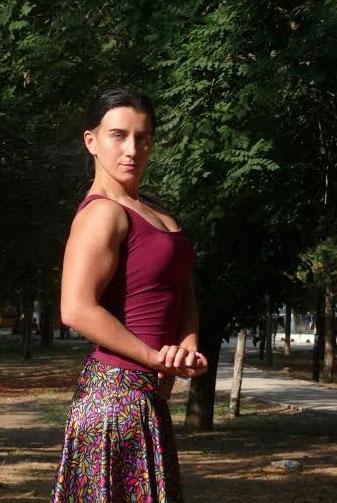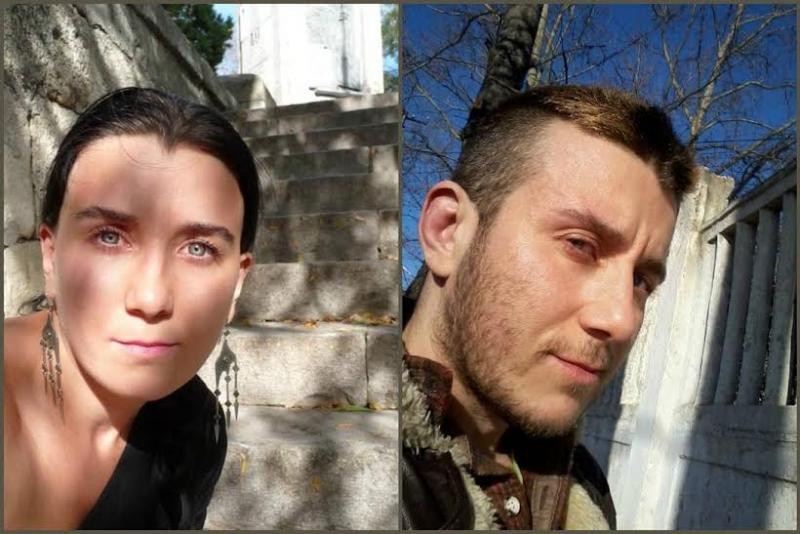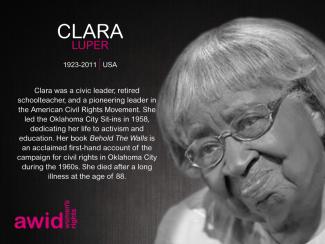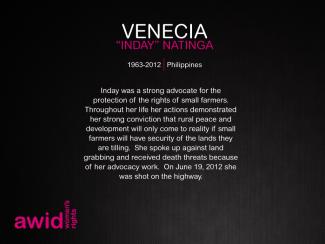Transiciones: La historia de Tangarr
Después de que Rusia le quitara Crimea a Ucrania y la anexara en marzo de 2014, las comunidades de personas lesbianas, gay, bisexuales, trans, queer e intersex (LGBTQI) de la península y sus derechos quedaron sujetos a una ley discriminatoria y represiva conocida como ley de «propaganda anti-gay».
Tangarr nació en Sebastopol, una ciudad sobre el Mar Negro. Como hombre trans y gay con firmes convicciones y principios que apoyan el feminismo, los derechos LGBTQI y los derechos humanos en general, considera que Crimea se ha tornado un lugar peligroso y por eso huyó con su pareja a la parte continental de Ucrania.
Sobre la identidad
A diferencia de la mayoría de las personas trans, Tangarr descubrió relativamente tarde que su identidad de género no coincidía con el sexo que le habían asignado al nacer. Nos contó que su infancia fue relativamente feliz y que su madre y su padre tenían una visión bastante liberal de cómo se supone que lxs niñxs deben comportarse. Los trataban a él y a su hermano de igual manera y nunca intentaron persuadir a Tangarr de que «actuara como una niña normal» o que hiciera cosas que la sociedad tradicionalmente considera como femeninas.
«Jugaba a indios y vaqueros, escalaba montañas con mis padres y mi hermano, íbamos de mochileros. Practicaba judo. No tenía ningún problema en ser yo mismo.»

Pero la llegada de la pubertad implicó desafíos para él. No estaba contento con nada lo que su madre valoraba, sobre todo la idea a menudo idealizada de que ese es el momento en que «las chicas se convierten en bellas mujeres».
Sus sentimientos en relación a esos cambios tenían que ver más con la preocupación y la frustración, y recuerda lo «difícil que es darse cuenta que tu cuerpo se desarrolla de una forma que contradice a tu alma».
La sociedad no lo trataba de la forma en que él quería ser tratado; la gente veía en él a una joven y lo único que él sentía era que algo no estaba bien. Su confusión estaba relacionada con el hecho de que la percepción que la gente tenía de él lo decepcionaba.
«Pensé que era lesbiana (porque, como ya saben, el estereotipo las muestra como mujeres masculinas), pero prefería a los hombres. Es uno de los momentos en los que te das cuenta de lo importante que es entender las cuestiones del género y la orientación sexual».
Tangarr relata que como carecía de información acerca de las personas transgénero, pensó que el problema principal era su cuerpo. Hizo ejercicio y logró «volverse más musculoso y atlético, pero definitivamente algo estaba faltando». Sin embargo, la sensación persistente de que algo no estaba bien se veía atenuada por un entorno bastante liberal en el que contaba con la comprensión y el apoyo de sus amigxs.
Fue una persona (que él conocía) quien cambió su vida cuando intentó insultarle diciendo «No importa cuánto ejercicio hagas, nunca serás un hombre». En ese momento Tangarr se dio cuenta de algo que nunca se le había ocurrido antes...
«Pensé que estaba solx. Una chica que se sentía como un chico — lo que es más, un chico gay».

Cambios legales y desafíos
Antes de su cambio de sexo legal, Tangarr encontró información en línea y habló con gente que le ayudó y le guió mientras aprendía todo lo que necesitaba saber acerca de este proceso en Ucrania. Leyó historias, artículos médicos, básicamente todo lo relacionado con los cambios en la apariencia y la terapia de reemplazo hormonal.
Tangarr comenzó la terapia y se hizo una mastectomía (extirpación de los senos) en Moscú, Rusia, ya que «no hay cirujanos en Ucrania que sean conocidos por su pericia en este tema». Para él, esta situación también refleja el estado general de «ignorancia sobre los temas trans que existe entre la población, incluso entre lxs trabajadorxs de la salud».
«Por todo aquello que atesoramos, es impensable negarse a enfrentar el desafío.»
Sin embargo, en Ucrania, para completar el cambio de sexo legal es obligatoria la esterilización irreversible. Tangarr protestó contra eso porque «las razones por las que la esterilización forzada es discriminatoria son demasiadas para ser enumeradas». Con el apoyo de una persona amiga pudo cambiar sus documentos legalmente, sin someterse a una histerectomía (extracción del útero). Tangarr es una de las pocas personas que lo ha hecho en Ucrania.
Discriminación/Prejuicios/Violencia y la afiliación al/los movimiento(s)
«Siempre me pareció raro que nadie hiciera nada para evitar que eso sucediera... Pero luego entendí que ese nadie era yo.»

Las experiencias de Tangarr durante su vida (como mujer) le llevaron a unirse al movimiento feminista, «ya que el proceso adicional de socialización masculina puso de relieve todos los desafíos que las niñas y mujeres deben superar día a día». Desde entonces es activista en la «Amenaza Violeta», un grupo cuyas principales áreas de interés son la teoría queer, el feminismo y los derechos trans y miembro activo de la Trans* Coalition [Coalición Trans*], grupo que une a las personas trans y sus aliadxs en los países de la antigua Unión Soviética.
En diciembre de 2015 Tangarr comenzó su trabajo como activista participando en un coloquio entre representantes de la comunidad trans de los países de Europa Oriental y Asia Central (EECA, por sus siglas en inglés) y la Eurasian Coalition on Male Health (ECOM) [Coalición Euroasiática sobre Salud Masculina], para discutir sobre prevención y tratamiento de VIH y SIDA entre las personas trans como grupo socialmente vulnerable. Allí hizo una presentación sobre los «Los sesgos cognitivos como razones por las cuales los hombres trans corren un alto riesgo de infección por VIH, métodos de prevención y cómo mejorar la situación».
Tangarr ha colaborado en la creación de un folleto informativo sobre género, ha escrito artículos sobre temas trans, ha trabajado en un video que apoya al grupo Odessa Pride [Orgullo Odesa] y ha hablado en un programa de televisión acerca de los desafíos que enfrentan las personas trans cuando intentan hacer un cambio de sexo legalmente.
En el Centro de Lucha contra el VIH y el SIDA de Kirovogrado (Ucrania central), Tangarr ha sido invitado a dar una conferencia para periodistas, activistas de derechos humanos, trabajadorxs de la salud y policías sobre temas trans.
Tangarr cree firmemente que «la educación es una panacea contra los prejuicios y conceptos erróneos, la discriminación y la xenofobia». Su lema es: «Ríndete a la verdad tan rápido como puedas».
«Cuanto más sepamos sobre identidad de género y orientación sexual, menos prejuicios tendremos. El prejuicio trae aparejado sufrimiento, por eso barrer con la ignorancia es reducir el dolor que ella causa».






